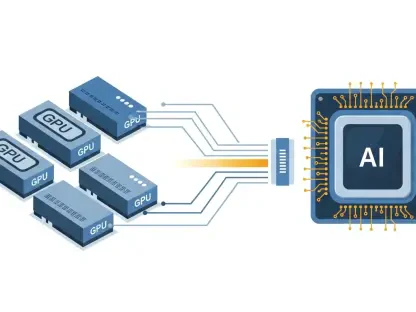In an era where data drives decisions across every sector, from healthcare to environmental policy, the demand for skilled data scientists who can navigate complex challenges with both technical prowess and ethical clarity has never been higher. Yale University is rising to this call with the introduction of the Peter Salovey and Marta Moret Data Science Fellows Program, slated to launch in the spring of 2026. This ambitious initiative, born from a partnership between the Graduate School of Arts and Sciences (GSAS) and the Yale Institute for Foundations of Data Science (Yale FDS), seeks to build a vibrant community of doctoral students poised to redefine the field. By emphasizing interdisciplinary collaboration, comprehensive training, and societal impact, Yale aims to position itself as a leader in cultivating talent capable of addressing some of the world’s most pressing issues through data-driven innovation.
Pioneering a New Era in Data Science
Building an Interdisciplinary Community
The core mission of this fellowship program rests on the conviction that the future of data science hinges on collaboration across diverse academic domains. Yale is creating a unique environment where doctoral students specializing in applied data science can exchange ideas with peers focused on the mathematical, statistical, and computational foundations of the field. This cross-pollination of expertise is designed to spark innovative solutions to complex problems, ranging from climate modeling to public health crises. Dan Spielman, Sterling Professor of Computer Science and Director of Yale FDS, has noted that such interactions align perfectly with the institute’s goal of fostering meaningful dialogue. By breaking down silos between disciplines, the program encourages students to approach challenges with fresh perspectives, potentially leading to breakthroughs that might not emerge within a single field of study.
Beyond just connecting different areas of expertise, the initiative seeks to build a lasting sense of community among participants. The program’s structure facilitates regular interactions through seminars, workshops, and collaborative projects, ensuring that students don’t merely work alongside one another but actively learn from each other’s methodologies and insights. Lynn Cooley, Dean of GSAS, has highlighted the potential for “serendipitous exchanges” to ignite groundbreaking discoveries, emphasizing how unexpected conversations can lead to novel ideas. This focus on building a cohesive network of thinkers sets the fellowship apart, as it prioritizes human connection in a field often dominated by algorithms and technology, aiming to create a supportive ecosystem where innovation thrives through shared knowledge and mutual inspiration.
Financial and Academic Resources
Supporting emerging talent with robust resources is a cornerstone of Yale’s fellowship program, ensuring that financial constraints do not hinder academic and research pursuits. Approximately 20 Ph.D. students will benefit from funding for conference travel, workshops, and access to cutting-edge research computing and data storage tools. For a select group, the program offers up to two years of stipend and tuition support, alleviating the burden of financial stress and allowing them to dedicate their full attention to pioneering work. This level of investment demonstrates Yale’s commitment to removing barriers that often impede deep research, enabling fellows to explore ambitious projects without the distraction of funding concerns and positioning them to make significant contributions to data science.
In addition to financial backing, the academic framework of the program is crafted to broaden intellectual horizons and sharpen technical skills. A dedicated seminar on data science, featuring guest lectures by leading Yale researchers, will expose students to the latest developments and thought leadership in the field. Complementary coursework outside their primary research areas further enriches their education, encouraging a well-rounded understanding of data science applications. This dual approach of financial and academic support ensures that fellows are not only equipped with the tools they need but also inspired to think beyond conventional boundaries, preparing them to tackle multifaceted challenges with both depth and versatility in their analytical approaches.
Empowering Data Scientists for Societal Good
Outreach and Ethical Practice
A distinguishing feature of Yale’s fellowship program is its strong emphasis on community engagement, extending the impact of data science beyond academic circles. Fellows will participate in outreach activities such as mentoring undergraduates, organizing events at local schools, and teaching in initiatives like the Big Data Summer Immersion program, spearheaded by Bhramar Mukherjee, Senior Associate Dean for Data Science at the Yale School of Public Health. These efforts aim to inspire the next generation of learners while embedding a sense of social responsibility in participants. By engaging with younger students and broader communities, fellows will help demystify data science, making it accessible and relevant to diverse audiences, thus fostering a wider appreciation for its potential to address real-world issues.
Equally important is the program’s commitment to ethical practice, ensuring that data science is conducted with integrity and humanism. Mukherjee has articulated a vision for a community that practices data science with “rigor, ethics, and humanism,” reflecting a balance between technical excellence and moral considerations. This focus is critical in an era where data misuse can have far-reaching consequences, from privacy breaches to biased algorithms. Through structured discussions and activities, the program will encourage fellows to critically evaluate the societal implications of their work, equipping them to navigate ethical dilemmas and advocate for responsible innovation. This dual emphasis on outreach and ethics positions the initiative as a model for how data science education can serve the greater good while maintaining high standards of accountability.
A Unified Mission for Innovation
Yale’s academic leadership stands firmly behind the fellowship program, united by a shared vision of preparing students to lead data science into the future across various spheres. Figures like John Lafferty, co-chair of the program’s steering committee, view the initiative as a unique platform for enhancing training while building a tight-knit community. This holistic approach integrates technical proficiency with professional skills, such as communication and leadership, through poster sessions, oral presentations, and research seminars. Named in honor of former Yale President Peter Salovey, who championed data-driven research, and Marta Moret, the program reflects a legacy of forward-thinking investment in the field, aiming to produce graduates who can influence academia, industry, and public policy with equal impact.
Looking ahead, the long-term goals of the initiative are as ambitious as they are inspiring. The program is designed not just to train individuals but to cultivate a generation of data scientists who will redefine the discipline through innovation and collaboration. By fostering an environment where interdisciplinary ideas flourish and societal needs are prioritized, Yale is laying the groundwork for sustained impact. As applications open on March 1, 2026, this fellowship stands as a testament to the university’s dedication to shaping a future where data science serves as a powerful tool for progress, guided by a cadre of well-prepared, ethically grounded leaders ready to tackle global challenges with creativity and resolve.









